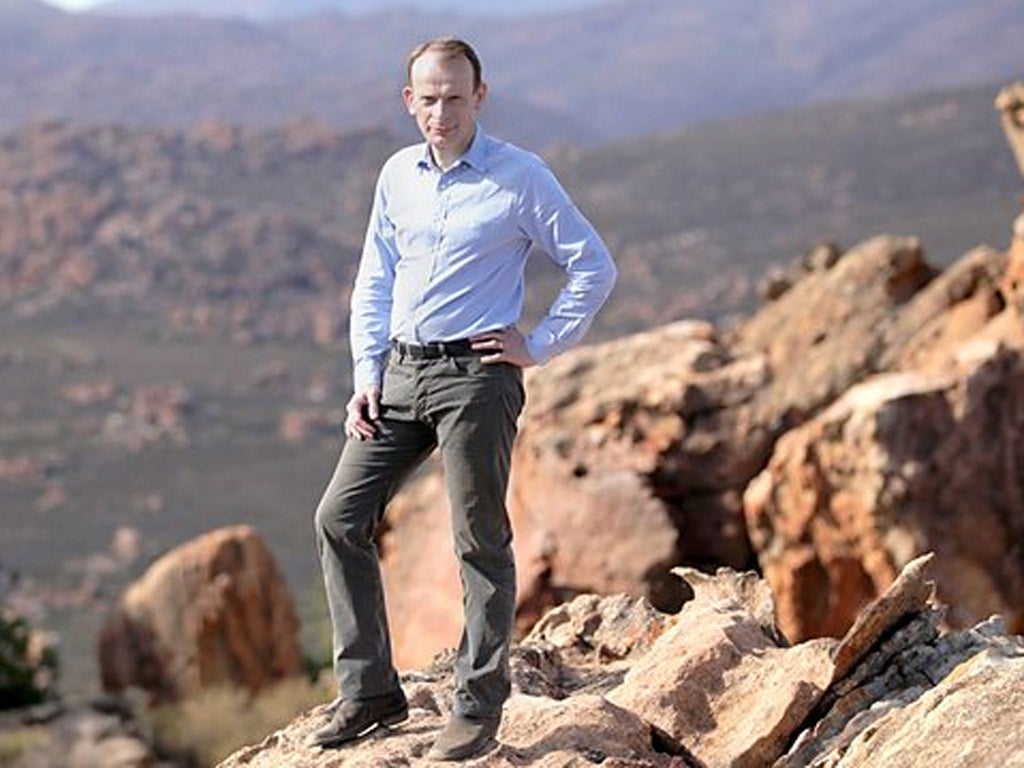Paperback reviews: From Head of State by Andrew Marr to The Putin Mystique by Anna Arutunyan
Andrew Marr has written nine non-fiction books, and I’d suggest that that is where his talents really lie

Head of State by Andrew Marr - Fourth Estate: £8.99
The journalist, author, documentary-maker, and TV presenter Andrew Marr knows an awful lot about politics and the media; and one would expect a political thriller emerging from his laptop to be worth reading, especially when it comes with plaudits including “brilliant”, “riveting” and “the hottest thriller in town” blazoned on the front cover. It pains me to report that Head of State is a big fat disappointment. The central premise – a massive cover-up is orchestrated by a group of government insiders on the eve of a referendum which will decide whether Britain stays in the EU – is not bad, and in the hands of a decent literary thriller-writer, such as Robert Harris or William Boyd, this could have been worth reading. But Marr’s prose is awkward, galumphing. The story consists of little set-piece scenes bolted together – a purple patch of description here, a not particularly pithy observation about the state of the nation there, a section of backstory in this bit – which never quite achieve harmony as a whole. It reads as if it was written in short, isolated bursts; and given Marr’s extensive work commitments, it probably was. The dialogue is unconvincing, with characters speaking in well-worn, often facetious phrases (“dear boy”; “cast nasturtiums”). There’s a gallery of characters – the newspaper editor, the prime minister, the arch-fixer, the psychopathic assassin, etc – but they all stolidly remain characters in a book, rather than real people; at one point, one character commits a random act of violence (for which the phrase “under-motivated” would be putting it mildly) simply to remove the victim from some scenes in which he’s not going to be needed. Andrew Marr has written nine non-fiction books, and I’d suggest that that is where his talents really lie.
**
Man at the Helm by Nina Stibbe - Penguin: £7.99
Nina Stibbe’s first book was Love, Nina, a selection of very funny letters written to her sister while she was working as a nanny. This follow-up novel has a similar voice – there’s the same matter-of-fact tone, the same faux-naivety, the same type of family in-jokes, the same good nature – but it’s not quite as funny. After her parents split up, nine-year-old Lizzie moves to an unfriendly country village with her mother, older sister, and younger brother. Lizzie and her sister decide that their mum needs a man to look after her, and hatch a plot to “contact ... the suitable men in the area and invite them to have a drink with her and hope that it would lead to sexual intercourse and possibly marriage”. It’s a pleasant read and the contrast between Lizzie’s knowingness and her childlike voice is enjoyable; there’s also a rather compelling sub-plot about a frog puppet. But whereas I wished Love, Nina were longer, I was quite happy for this to come to an end.
***
The Putin Mystique by Anna Arutunyan - Skyscraper: £16.99
Anna Arutunyan travelled all over Russia and interviewed scores of people to assemble this extended piece of reportage on how the Russian people see Vladimir Putin: factory workers, government officials, police officers, generals, and even several encounters with Putin himself. As well as (limited) opposition, Putin inspires surprising levels of devotion: one group of female students posed in their underwear for a calendar which was presented to Putin on his birthday. Arutunyan’s thesis is that Putin’s mystique stems from the Russian people rather than from him, and that he’s viewed in the mystical, quasi-religious way that the tsars once were. The book is full of fascinating ideas, but could do with a bit more narrative drive.
***
Dante: The Divine Comedy, translated by Clive James - Picador £16.99
Clive James has produced an excellent new version of Dante’s masterpiece. Eschewing Dante’s terza rima, he has opted instead to write in rhyming quatrains, but without spaces between them, so each canto is a solid block of text. James handles the rhythm with ease and assurance, using enjambment freely, and brings a colloquial tone to the translation. James has also decided to explain allusions within the text, rather than resort to footnotes. The only previous translation I’d read was non-rhyming, very literal, and crammed with footnotes. This is a much better read, and wonderfully conveys the strangeness and vastness of Dante’s vision. An impressive work of scholarship, and of poetry in its own right.
*****
How to See the World by Nicholas Mirzoeff - Pelican £8.99
Nicholas Mirzoeff is a professor of media, culture and communication, and this short book is a guide to understanding visual culture. Deploying a blend of semiotics, sociology, and art history, Mirzoeff shows us how to interpret everything from old masters to selfies, from Rashomon to a map of the Mississippi. Mirzoeff says he owes much of his approach to John Berger, and this is evident in the way he argues how inevitably political visual images are. He also persuasively makes the case that visual culture is changing rapidly, thanks to the advent of the internet. Mirzoeff draws on theorists such as Benjamin, Foucault, and Deleuze, but thankfully is much clearer and easier to read than any of those writers.
****
Join our commenting forum
Join thought-provoking conversations, follow other Independent readers and see their replies
Comments